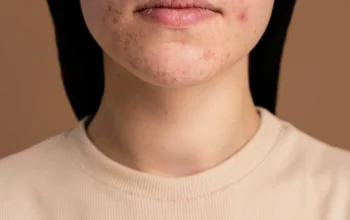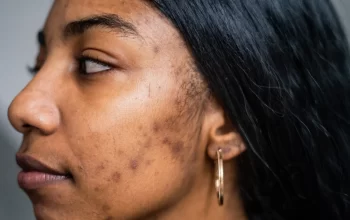Acne is caused by several processes. In simple terms, acne happens when there is an overproduction of oil in the skin. This excess oil mixes with dead skin cells blocking the pores. Acne sufferers typically have black heads, white heads, or pimples that have a red or purple color. If the pores are clogged, bacteria proliferate in the skin resulting in an infection.
In acne, the sebaceous glands start to secrete too much oil. Testosterone. This is the same hormone that causes oily hair and body hair. Teenage acne is believed to be caused by abnormally high levels of a male hormone called testosterone, which usually occurs during puberty. The hormone regulates male sexual characteristics, such as sexual desire and the size of the penis, and helps maintain bone and muscle strength in women, as well as developing hair and skin.
While many women suffer from adult acne, men suffer mostly from the mild form of this disease. The most common form is usually acne vulgaris, which is not considered to be serious acne. Adult women are more prone to milder forms of acne due to changes in hormones as they enter their 30s and 40s. Pregnant women and menopause also cause changes in hormone levels and therefore are more susceptible to severe acne.
Another reason for acne becoming worse is due to inflammation, which leads to scarring. Scarring occurs when the follicle becomes infected or ruptured, by white blood cells and/or bacteria. There are several ways to treat this type of acne: surgery, drainage of the plug by way of drainage canals, and often antibiotic medication. In some severe cases, surgery may be needed to remove all the scars caused by inflammation, although many people try to improve scarring by applying ointments to the affected areas.
Acne also occurs when the sebaceous glands become blocked, either through clogging or excess oil production. This can be the result of hormonal imbalance, excess dead skin cells, or a bacterium or fungus. Blackheads occur when the sebaceous glands become blocked, while whiteheads occur when the sebaceous glands are overactive. This problem tends to worsen during pregnancy because the hormone progesterone is produced in larger amounts. Blackheads and whiteheads can also be related to increased production of bacteria by the sweat glands and pores, or the action of detergents or soap on the skin.
The effectiveness of certain over-the-counter and prescription topical treatments vary, depending on the type of acne and the severity of it. Topical adapalene should be applied to pimples and open lesions only. Care should be taken not to contact the skin of people who are allergic to adapalene. Adapalene should not be used for internal treatment of acne, unless directed by a doctor.









